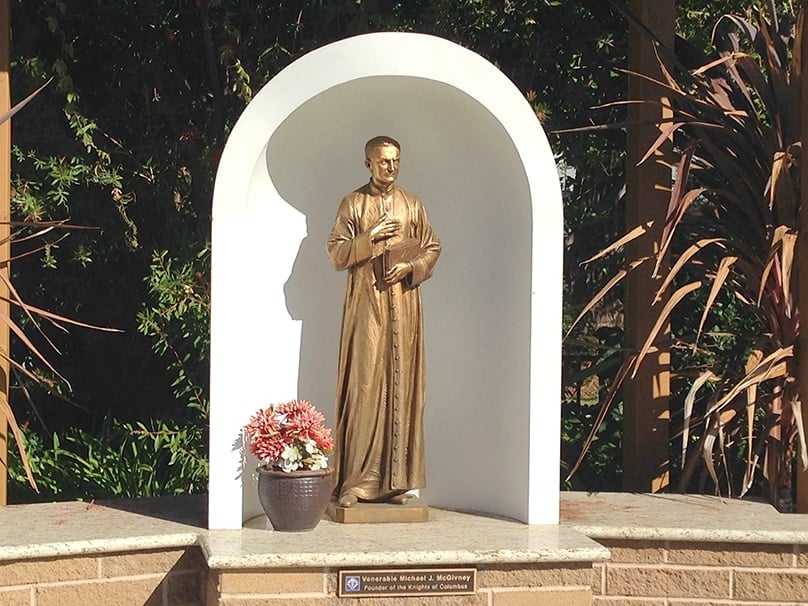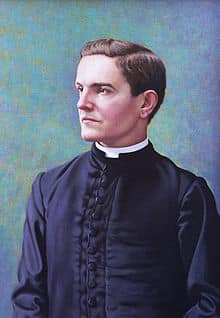
Pandemic 2020 has been hard on every Catholic
The Pandemic of 2020 has been hard on every Catholic. Eucharistic fasting for this length of time may remind us what 20th century heroes of the faith in underground Churches endured, and what 21st century confessors in China and elsewhere endure today; and that is no bad thing.
Still, it is very, very hard to be the Catholic Church without being a vibrantly Eucharistic Church. That’s true for everyone. The people of the Church should realise that it’s especially true for priests.
Priests who live out their priesthood as the Catholic Church understands that unique vocation – as an icon of the eternal priesthood of Jesus Christ, the Church’s spouse – miss their Eucharistic congregations terribly.
They have dedicated their lives to nourishing the flock, and to be unable to do so as they did at the beginning of this year is a constant sorrow.
The Pandemic of 2020 has been hard on every Catholic. All the more reason, then, to celebrate the October 31 beatification of an exceptional parish priest, Father Michael McGivney, founder of the Knights of Columbus, who died during a pandemic in 1890
Priests are also bearing heavier financial burdens these days as donations shrink. Then there are the serious challenges involved in keeping parish activities afloat under today’s public health circumstances.
No man entering the seminary after the Long Lent of the 2002 sexual abuse crisis could imagine he was embracing an easy life; but no one expected this.
Father Michael McGivney – Knights of Columbus
All the more reason, then, to celebrate the 31 October beatification of an exceptional parish priest, Father Michael McGivney, founder of the Knights of Columbus, a US Catholic mens organisation similar to the Knights of the Southern Cross in Australia, who died during a pandemic in 1890.
He was born in 1852 to immigrant parents and his brief life coincided with the greatest period of expansion in US Catholic history.

That expansion also helped define his heroic ministry – and his genius. America in the late 19th Century had nothing remotely resembling the social safety net created since the New Deal created by President Franklin Roosevelt in the 1930s.
Immigrant and first-generation families who lost their sole wage-earner could find themselves in desperate straits. In collaboration with Catholic lay leaders, Father McGivney founded the Knights of Columbus in 1882 and created a new model of Catholic pastoral action: a fraternal organisation that would provide for the spiritual and material needs of its members while serving the bereft, the indigent, and those foundering in their new homeland.
Catholicism has been one of the great integrators of immigrants in American history, and no small credit for that is due to the Knights.
McGivney’s Knights also anticipated the Second Vatican Council in its teaching that the lay vocation in the world is just that: a vocation, a divine calling to live out the Great Commission given every Catholic in baptism: “Go and make disciples….” (Matthew 28:19).
Following Father McGivney’s lead, the Knights have been a force for evangelisation as well as charity, even as they have provided major philanthropic support to many Catholic initiatives, including Vatican communications.
Related Links
George Weigel: Papal states had to go
George Weigel: A new Sunday better normal
Knight’s recent robust defense of religious freedom
In the public arena of US life, the Knights’ recent robust defense of religious freedom follows the example of their work for racial justice. Knights of Columbus chapters on nominally Catholic campuses today provide young men serious about their Catholicism with a means of evangelising their peers while nurturing their own faith.
Father McGivney’s beatification is a blessing; it is also a compliment paid by the universal Church to parish priests. Two of the finest here in the US were called home to the Lord in recent months.
Their memory is already firmly lodged in the hearts of the people they served, and they stand as further models of priestly goodness.
One of his admirers told me that, were it not for the pandemic, the entire city of Grand Rapids, Michigan, might have turned out in May for the funeral of Father Dennis Morrow, so beloved was this priest, police, and fire department chaplain. I knew Den Morrow in university and he remained a rock of Catholic faith for the next 50 years.
Father Philip Tighe came to the seminary after a business career, and it was clear from the deacon year he served in my Maryland parish that he would be a superb priest, eager to lead others in the adventure of orthodoxy – which I happily observed him doing when he became my daughter’s family’s parish priest. His death on 31 August deprived his Diocese of an exceptional spiritual leader.
There being neither rivalry nor jealousy in the heavenly Jerusalem, it is easy to imagine Fathers Morrow and Tighe celebrating Father McGivney’s beatification with him. May these three great priests intercede for us all.
Related Links
George Weigel: Papal states had to go
George Weigel: A new Sunday better normal
